A CPU-cache is a hardware structure used by the CPU to reduce the average access memory time.
Caching is beneficial once some data elements get re-used.
Caching is a general policy
aimed at eliminating latency,
already paid for next, repetitive re-accessing some already visited
but otherwise "expensive" ( read slow ) resource ( storage )
Caching does not speed-up memory access.
The maximum a professional programmer can achieve is to pay attention and excercise a due care to allow some latency-masking in a concurrent-mode of code execution, with a carefully issued instructions well beforehand before a forthcoming memory data is indeed consumed, so that the cache-management can release a LRU part and pre-fetch the requested data from slow DRAM.
How it works?
Main memory is usually built with DRAM technology, that allows for big, dense and cheap storage structures. But DRAM access is much slower than the cycle time of a modern CPU (the so called memory wall). A CPU-cache is a smaller memory, usually built with SRAM technology (expensive, but fast) that reduces the amount of accesses to main memory by storing the main memory contents that are likely to be referenced in the near future. Caches exploit a property of programs: the principle of locality, which means adjacent memory addresses are likely to be referenced close in time (spatial locality), and if an address is referenced once, it is more likely to be referenced again soon (temporal locality).

The CPU cache is tagged with an address which are extra SRAM cells. These tag cells indicate the specific address that holds the data. The CPU cache can never mirror the entire system memory so this address must be stored. The index in the array forms a set. The index and the tag can use either physical or virtual (MMU) addresses; leading to the three types PIPT, VIVT, VIPT.
Modern CPUs contain multiple levels of cache. In SMP situations a CPU cache level may be private to a single CPU, a cluster of CPUs or the whole system. Because caching can result in multiple copies of data being present in an SMP system, cache coherence protocols are used to keep data consistent. The VIVT and VIPT type caches can also result in interactions with the MMU (and its cache commonly called a TLB).
Questions regarding CPU cache inconsistencies, profiling or under-utilization are on-topic.
For more information see Wikipedia's CPU-cache article.